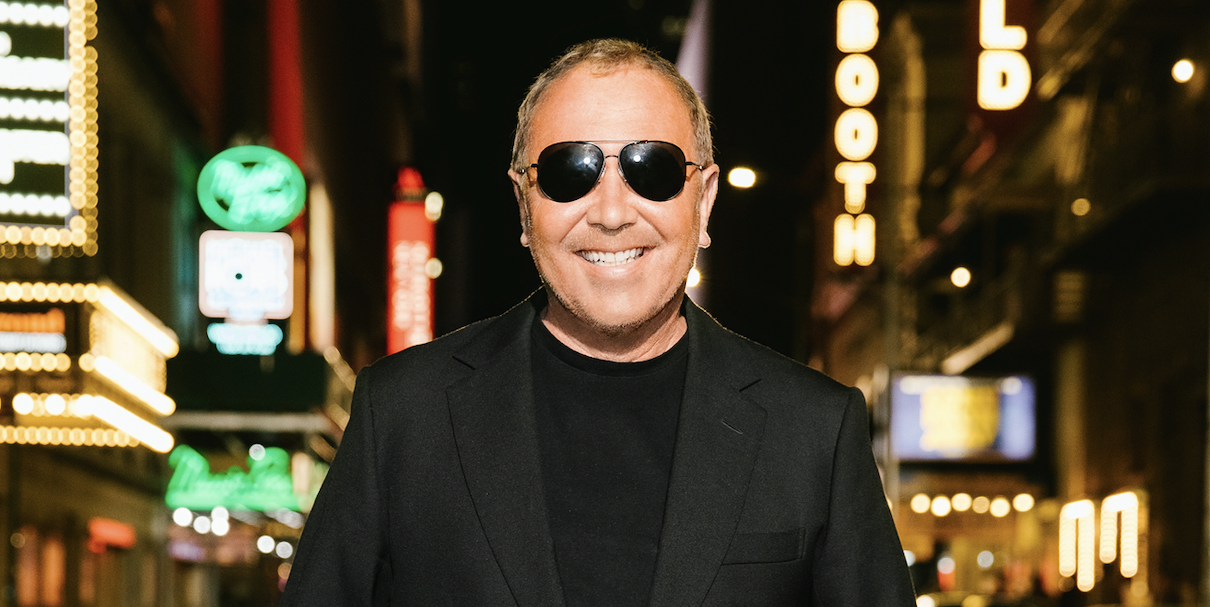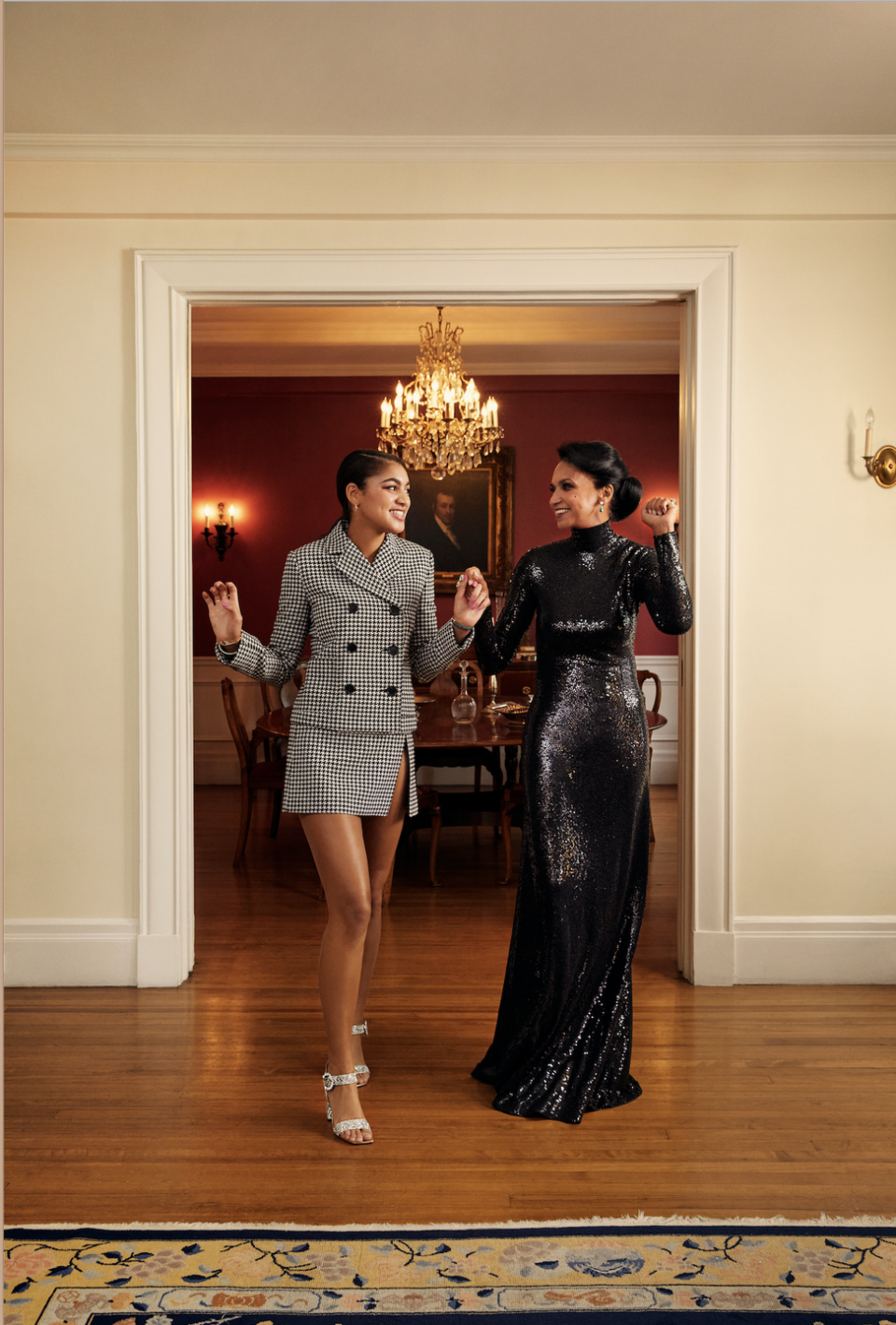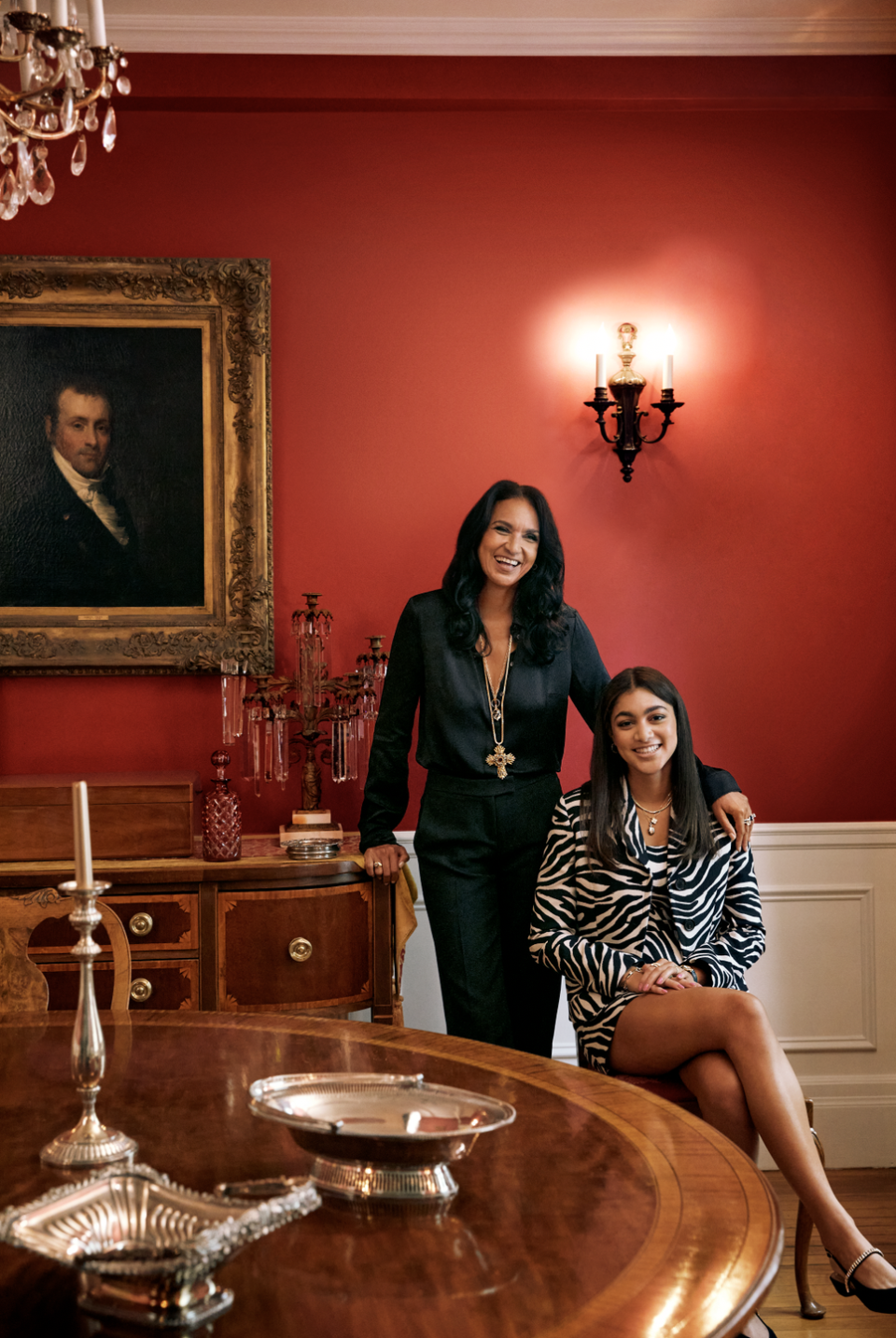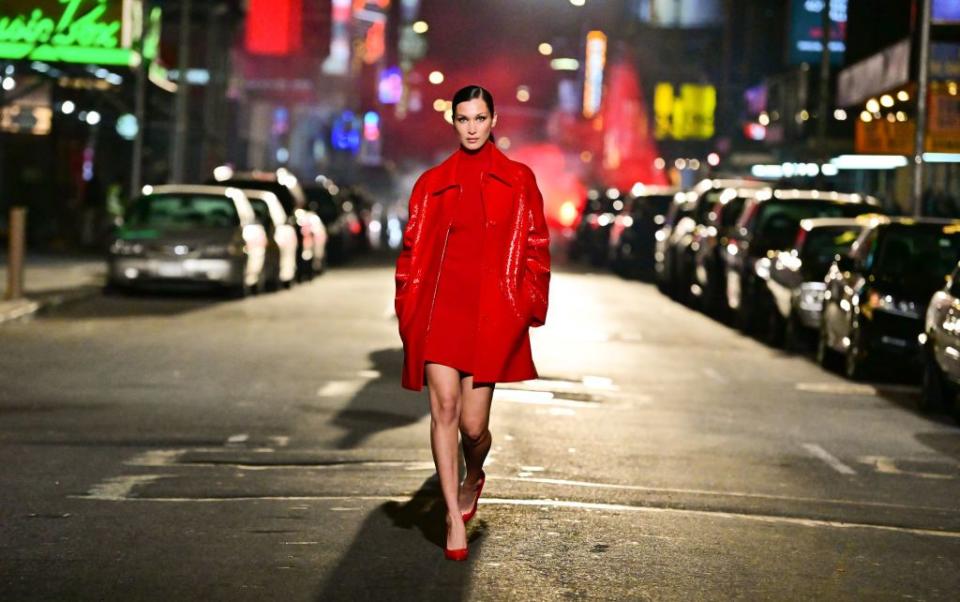Michael Kors Has the Skeleton Key to a Timeless Wardrobe

- Oops!Something went wrong.Please try again later.
- Oops!Something went wrong.Please try again later.
Michael Kors is not angsty. He’s not artsy or aggressive or avant-garde. For decades he has served up good taste in a crisp package, delivered by private driver. In his world, the sun is always shining and the people are always well mannered and cheerful, even when they’re trying their best to affect a modelish scowl. They’re not bothered with the inconveniences of clogged roads or airport security lines, traveling immaculately by G6 or Riva motorboat.
The models in his ads actually look as though they’re having fun—is that Bella Hadid, wearing a bikini and a big smile, holding a hamburger? Binx Walton on a private jet, digging into a bag of Lay’s? All that pleasure, all that food—even just as props—are almost anti-fashion. And that may be why it works.
Kors’s success is rooted in his understanding of American taste, the preference for simple shapes and expensive, or expensive-looking, fabrics. That insight, and his invitation to consumers to infuse his clothes with their own audacious style, accounts for Kors’s remarkable 40-year run in a capricious industry. He has marked the milestone with all the flash of a Broadway impresario, including a show from the heart of the theater district that featured his reimagined classics on celebrities, models, and model-celebrities, including Bette Midler, Billy Porter, Naomi Campbell, and Shalom Harlow.
“My taste is a confluence of yin and yang,” he tells me. “I like extravagance, but I like simplicity. I like full-on glamour, but I like comfort. I like something that knocks you out, but then something that will last for 25 years.”
Kors started taking notes on style as an only child growing up among “this enormous cavalcade of opinionated women.” From his grandmother Bea (“fuchsia suit, fuchsia tights, fuchsia jewelry, fuchsia handbag”), mother Joan (“understated, tailored, all that”), and aunts (lace, leopard, and, once, a bikini top with hip huggers at a bar mitzvah), Kors picked up clues that would serve him well.
“I was able to see all of these different personalities expressed through how they dressed,” he says.

His circle of fashion-obsessed women expanded when he became a salesman at Lothar’s, a Manhattan boutique where, he remembers,“Marella Agnelli would come in and buy tie-dye jeans in a stack.” That group mushroomed again when he held trunk shows at department stores across the country for his own collections, paying keen attention to customers’ enthusiasms and complaints. He became, in essence, a one-man social listening platform.
You’ve probably heard the stories because Kors became a quote machine, offering quips and observations to every reporter with a deadline, Karl Lagerfeld without the bite. When he joined Project Runway for its earliest and zeitgeistiest seasons, he turned that instinct into an identity. The show made him a star with a bona fide, profit-fueling fan base, and then—ta-da!—a billionaire.
Despite the fame and fortune, Kors is not elitist. A committed philanthropist devoted to organizations including God’s Love We Deliver, he makes you want to root for him. And he gets it, because he’s rooting for you, too. Even when talking about something as potentially snobbish as good taste, he resists the classist slant.

“When we think about taste and quality, some people assume that means the most expensive thing—and I don’t think that’s it at all,” he says.“It’s really the best quality within your budget, and that depends on each person.” Subway riders can be seen with their MK-logoed bags propped proudly on their laps, and he’s grateful for them.
Kors is the kind of fashion celebrity whose photo, with husband Lance LePere, papers the wall of more than one restaurant in Capri, usually surrounded by the staff in a big, jovial embrace. Maybe his place of honor there makes sense, given that Kors equates taste in fashion with food. He likes steak and loathes eggs. He’s not above Kraft macaroni and cheese or caviar on a potato chip.
“The minute you think good taste is universal, it becomes bland,” he says. “It’s like cooking a meal with no seasonings. You have to be smart enough to know yourself and know your own dislikes and likes. Good taste, ultimately, is self-knowledge. Self-knowledge can be honed and polished as you progress through the world. But you don’t want to get frozen. You have experience and curiosity—and isn’t that the best thing?”

Kors believes that memorable fashion is “either real understatement or audaciousness. You know, Britney Spears and Justin Timberlake in head-to-toe denim. Demi Moore’s bike shorts. We’re still talking about them,” he says. What he appreciates most is daredevilry, even if it isn’t always elegant.“I love when people look like they fell into a vat of animal print. Give it to me head to toe.”
Heading into his business’s fifth decade, Kors is still ambitious, still inspired by the next idea. “It’s my job to stay ahead of the curve, to get my head into what’s going on. And, still, to stay true to myself. That keeps me juiced. The minute you’re not juiced, well, then, find something that does it.” And with that, he’s off again, back to work.
This story appears in the October 2021 issue of Town & Country.
You Might Also Like

